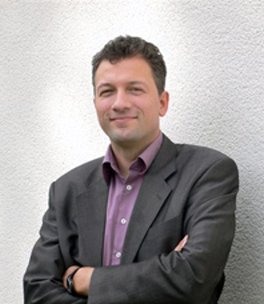Difference between revisions of "Philip Brey"
| Line 21: | Line 21: | ||
== References == | == References == | ||
*[http://www.utwente.nl/ceptes/research_staff/brey/ Brey, Philip] | *[http://www.utwente.nl/ceptes/research_staff/brey/ Brey, Philip] | ||
| + | |||
| + | [[Category: People]] | ||
Revision as of 20:11, 12 November 2011
Philip Brey
Phillip Brey is currently a professor of philosophy of technology and chair of the department of philosophy at the University of Twente in the Netherlands. He is one of the most important figures in combining three major subjects of the studies of information Ethics and Virtual Reality and Computer Simulations. His publications are based on these three items and show how they can interact in different ways.[1]
Current Participation
- The executive board of the Society for Philosophy of Technology.
- The International Society for Ethics and Information Technology.
- Director of the European division of the International Association of Computing and Philosophy.
- The editorial board of the journals Techné: Research in Philosophy and Technology.
- Ethics and Information Technology.
- The Journal of Information, Communication and Ethics in Society and Nanoethics
- Ethics for Technologies that Converge at the Nanoscale.
- Vice editor of the Society for Philosophy and Technology Newsletter.
- Netherlands Graduate School of Science, Technology and Modern Culture.
- Dutch-Flemish Network for Philosophy of Science and Technology.
- Centre for Telematics and Information Technology (CTIT) of the University of Twente.
Research
Most of Brey's research is based on the philosophy of technology and how this technology has transformed with the introduction of new ideas, such as virtual reality and computer simulations. "Much of his current research is directed to the philosophy and ethics of ICT, where he has published on the ethical and political aspects of computer systems design, the limits of artificial intelligence, the ethics and ontology of virtuality, the role of ICT in mobility and surveillance, the implications of ICT for globalization, geographical organization and the quality of life.[2]"
